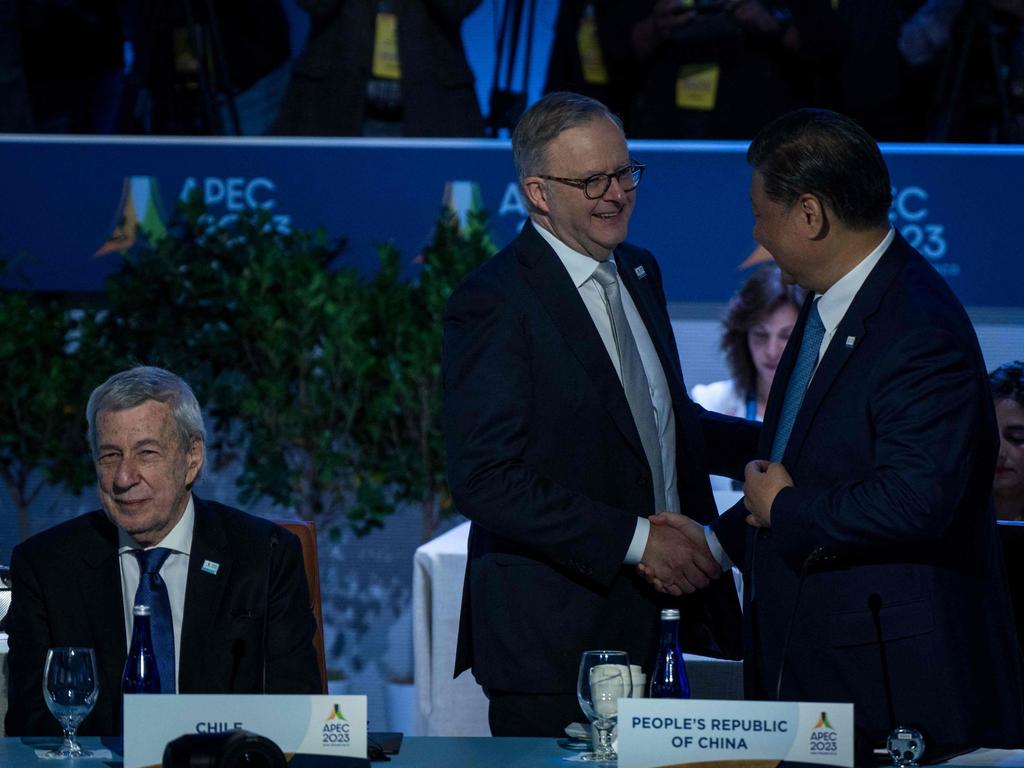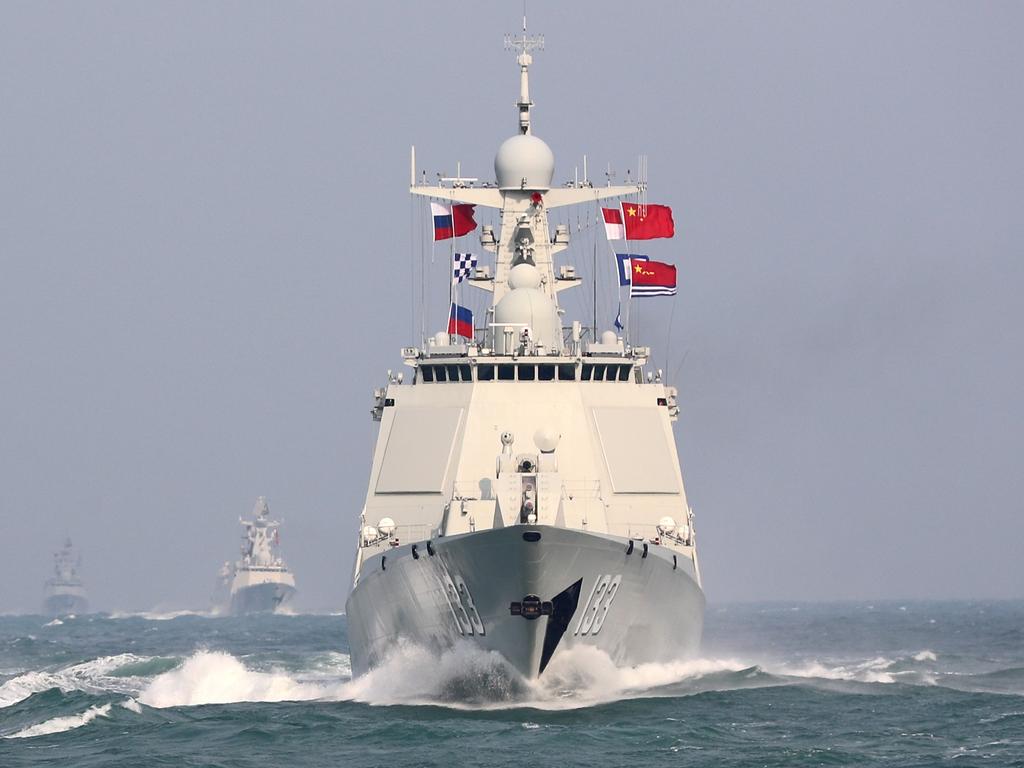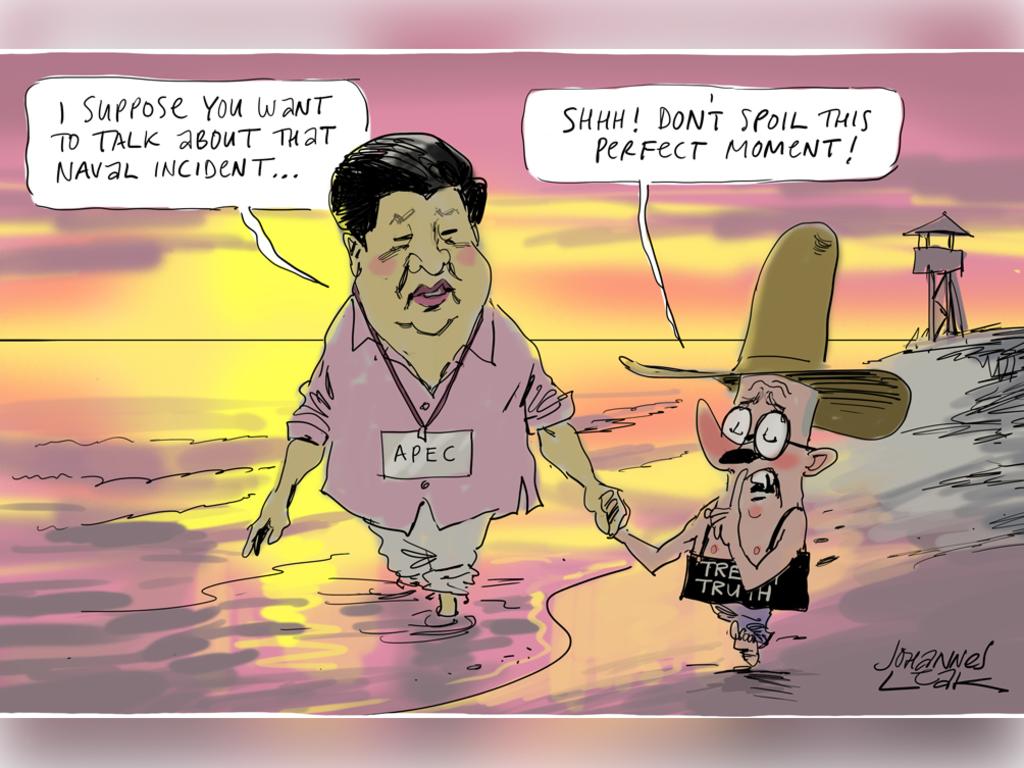Anthony Albanese’s silence on Xi Jinping confrontation casts APEC cloud


Both leaders are on a new strategic mission to restore relations, revive dialogue and remove impediments to trade. But how does this process work in practice and what happens when one side breaches the spirit of this cautious re-engagement?
The APEC summit serves as an early case study. Albanese returned to Australia on Sunday under pressure to say whether he raised with Xi a serious incident between the Australian and Chinese navies.
Australian divers in international waters in Japan’s exclusive economic zone were injured last Tuesday when they were subjected to sonar pulses from a Chinese destroyer that was told to stay clear.
The divers were trying to remove fishing nets from the HMAS Toowoomba’s propeller when they were targeted by what was clearly a deliberate and callous act committed by the Chinese. The government made clear it expressed its “serious concerns” to Beijing.
Yet Albanese will not say if he spoke to Xi about it – and he is unlikely to. The government also chose not to reveal the incident had occurred until after the summit concluded.
It looks like the incident was kept under wraps for days so as not to derail the APEC summit for Albanese and shield him from hard questions over his interactions with Xi.
The Prime Minister believes it is important to take a different approach to international diplomacy where his interactions with global leaders are not telegraphed to the world.
But it is an approach that comes with risks. Like all rules, sometimes there must be exceptions.
Albanese’s silence has now ignited concerns he failed to stand up for Australia or defend ADF personnel on the global stage, and the opposition will exploit this.
More than this, Albanese has also exposed himself to claims he lacked the backbone to raise the issue directly with Xi and that Australia has been forced into acquiescing to Beijing as part of the normalisation of relations.
Albanese has done the right thing in bringing the relationship with Beijing back to a more level footing and de-escalating tensions.
But these key political achievements will be undermined if the public senses Australia has made unnecessary concessions to secure them. So far, Albanese has normalised relations without concessions.
But what value lies in the reopening of communication channels and removal of trade impediments if the Australian Prime Minister feels he cannot raise unacceptable conduct from Beijing directly with his Chinese counterpart?
There is now a clear need for Albanese to break his rule, come clean and reveal whether he made Australia’s case directly to Xi at the APEC summit. Of course, he may have done this. The point is that Australians don’t know.
Remember Albanese’s mantra on China – “co-operate where we can and disagree where we must.” This is surely an example of the latter.
The fact a Chinese warship behaved so recklessly and inflicted harm on Australians so shortly after Albanese’s visit to Beijing is no small thing.
“The PRC government in Beijing may have changed their tactics, but their intentions and strategic objective is the same,” former prime minister Scott Morrison posted on social media over the weekend.
This is not the APEC story Albanese wants. But this was the trip that felt most flat for the Prime Minister.
While Peter Dutton overreached in calling for Albanese to stay home, Albanese should have taken a stronger Australian agenda to San Francisco. Instead, he was on the back foot and under pressure to defend his visit while the government encountered political turmoil back home.
Albanese was correct when he said he went to APEC to “represent Australia’s national interest”. For this reason, he should say if he raised the November 14 incident with Xi.







The story for Australia out of the San Francisco APEC summit is about Xi Jinping and Anthony Albanese.